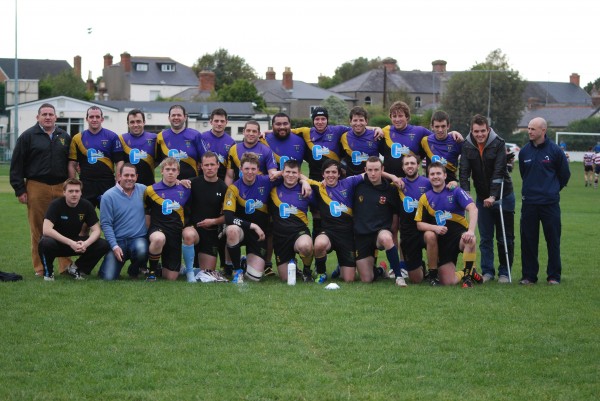
Most Friday nights when the lights come on and fans start pouring into the stadium here at the Railway Union Rugby Football Club in Sandymount, John Ryan a Consultant in Emergency Medicine at UCD, Associate Clinical Professor at St Vincent’s University Hospital and Chair of the Railway Union RFC Player Welfare Committee can be found not only examining players’ physical injuries but mental ones too.
“We’ve not had many incidents concerning mental health issues,” says Professor Ryan, “…as Chair of the Welfare Committee the responsibility rests with me to make sure the players get the right access to advanced mental health care,” he says. Professor Ryan tells me Railway Union Rugby Club has come across some players with mental health problems and provides counselling and other forms of psychological therapy if needed. In some cases, Professor Ryan may obtain the medical information of individual players, with their consent; if he feels further action is needed.
A recent study by the African Journal for Physical Health Education, Recreation and Dance, released at the end of 2012, examined the mental health and wellbeing of rugby players. The study titled ‘Mental skills of South African male high school rugby players: sport psychology,’ looked at a number of key areas concerning a professional athlete’s mental health- such as their mental health compared to people who don’t participate in the sport. Other studies, such as one by the University of Sao Paulo titled ‘Physical activity and mental health: the association between exercise and mood,’ looked at physical activity and mental health in more broad terms.
That study showed that increased physical activity might play a role in reducing many psychological problems in athletes such as depression and anxiety disorders and may help with a person’s personal confidence.
“It is generally agreed that regular physical activity creates a sense of wellbeing and may even help counter milder forms of depression and anxiety disorders,” says Professor Colin Boreham, the Director of the UCD Institute for Sport and Health, and, previously, a sports consultant to the Irish rugby team. Professor Boreham tells me that his personal observation of rugby players has indicated that the more sport someone plays, the more confident they become which has a direct impact on the player’s mental health.
According to the book Rugby Tough, by Bruce Hale and David Collins, rugby players must be physically and mentally fit in order to play well on the pitch. Many managers and rugby coaches have, as a result, become increasingly aware of the mental state of their players and have applied the necessary mechanisms to promote positive mental health.
Railway Rugby Union has adopted a similar approach, by keeping an eye on the mental state of its players, and allowing sessions for players to talk about their feelings with healthcare professionals. Professor Ryan suggests that the camaraderie of rugby promotes this advancement of positive mental health, and allows the players to be team orientated and focused on certain goals both during training and matches.
“Rugby is played first and foremost for the enjoyment factor,” says Keith Sothern a men’s coach for the 1st XV team at Railway Union RFC. Sothern tells me that when an individual player in rugby becomes goal orientated they become a little more focused and determined to be the best. This attitude will naturally have an effect on a player’s mental state, but according to Dr. Tara Magdalinski, a lecturer at the UCD School of Public Health, Physiotherapy & Population Science, whether or not those mental skills are transferred into everyday life is highly debatable.
“Whether these skills are context-specific, i.e. they only happen in the context of sport, or transferable is not established, there is a stereotype that sport leads to a whole host of positive characteristics that mean the person will become a much better human or citizen, which is why we encourage sport for convicted criminals, drug addicts, youth at risk .The assumption is that sport will rehabilitate. I would suggest that it is not sport but simply any structured activity that gives the participant some achievable goals,” says Dr. Magdalinski.
Generally, the sport of rugby has been quite visible in the mental health field. Recently Ireland’s Brian O’Driscoll, Paul O’Connell and Johnny Sexton became mentors to young people for Headstrong- an organisation promoting positive mental health. Former Munster and Ireland rugby star Alan Quinlan took part in the Lean on Me Campaign- studying mental health in athletics in Ireland.
At Railway Union Rugby club however, both Professor Ryan and Coach Sothern get ready for another match and another season of putting players’ mental and physical health first.
by Liam Cahill

